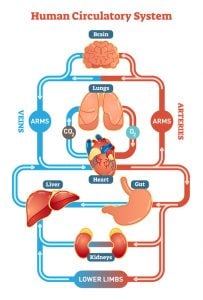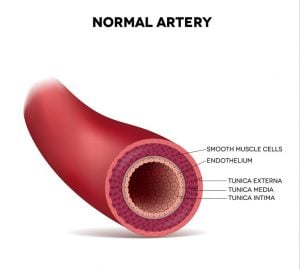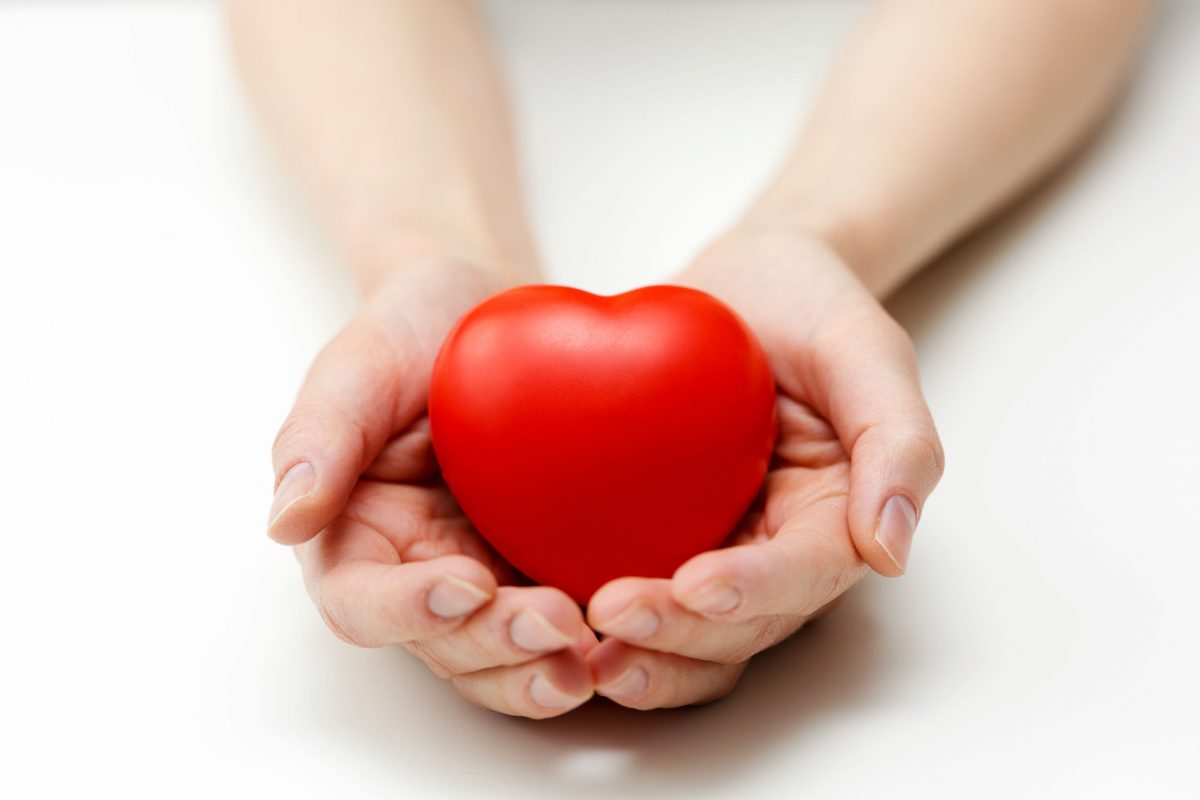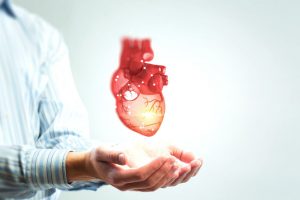Most of us take our blood circulation for granted – until there’s a problem. The large arteries, blood vessels, and other components that make up your circulatory system matter. If something goes wrong, the results can be severe.
Let’s look at the pulmonary circulation system. Why is it so important? What are some potential risks of circulatory issues?
Your Circulatory System: Why Is Blood Circulation Vital To Your Health?
The circulatory system’s main function is to carry oxygen throughout the body. This is so our muscles, tissues, and organs work properly. But blood circulation involves moving nutrients and hormones as well.
 Your blood supply, for example, delivers nutrients to the interstitial fluid that surrounds your cells. This makes it possible for cells to work properly.
Your blood supply, for example, delivers nutrients to the interstitial fluid that surrounds your cells. This makes it possible for cells to work properly.
The center of the circulatory system, of course, is the heart. Proper blood circulation keeps the heart healthy – and that keeps the body alive. The body provides signals that tell the heart how hard it needs to work.
When we exercise, the heart has to pump harder to provide muscles with oxygen to get us through a workout.1
The Components Of The Circulatory System
Adults typically have about six quarts of blood.2 This blood is made up of white and red blood cells, platelets and plasma. But how does all of this blood flow throughout the body?
Here’s a quick look at some of the more important parts of the circulatory system.
Systemic circulation
This part of the circulatory system includes your arteries, pulmonary veins, and blood vessels. They take oxygenated blood from the heart and move it to the brain and the rest of the body. They also take deoxygenated blood, also known as venous blood, and move it to the heart.3
The heart
This is the engine of the circulatory system. The right atrium portion of the heart receives deoxygenated blood from an artery known as the superior vena cava. This arterial blood then goes to the right ventricle. The heart then sends out oxygenated blood through the left atrium and left ventricle and into the aorta.4
Pulmonary circulation
This system transports blood to and from the heart and lungs. It does this through the pulmonary veins. Deoxygenated blood goes to the lungs, where it absorbs oxygen.5
Veins
What good would the circulatory system without the tubes to help guide blood where it needs to go? That’s where veins come in, of course. In order for veins (even tiny capillaries) to work, they need to maintain their flexibility. Nitric oxide, released by endothelial cells of blood vessels, helps make that possible.6
Arteries
 The arteries are large blood vessels. They move blood from the heart. One of the main ones is the carotid artery, found in the neck. They also move blood to capillaries and other blood vessels.
The arteries are large blood vessels. They move blood from the heart. One of the main ones is the carotid artery, found in the neck. They also move blood to capillaries and other blood vessels.
Capillaries, by the way, are the main way that nutrients and oxygen get to tissues.7 There are more than 20 arteries in the body – there are even vertebral arteries, which are also in the neck.8
Oxygenated Blood: Ways To Ensure Good Blood Flow
Oxygen is critical to life, of course. Blood flow is vitally important to make sure our organs get the oxygen they need in order to function. There are several ways to help ensure this happens properly.
Exercise like swimming, running, aerobics, and walking, can all help ensure proper blood flow.
Your diet also has a major impact on your circulatory system. Eating high fiber foods helps blood move through your arteries and capillary walls.
Relaxation is also important. If your muscles are constantly tense, that may make it hard for oxygen to get where it needs to go.9
Cardiovascular Health: What Are Some Potential Risks Of Poor Blood Circulation?
Problems with blood flow, may set you up for major health issues. Problems like blockages of internal carotid arteries can lead to blood clots and other potentially devastating consequences.
But it can be almost impossible to tell, in some instances, if you have an issue.10 This makes it especially important to have regular check ins with your doctor.
Issues With Your Heart, Lungs, And Blood Vessels: Know When To See Your Doctor
The body might give you a sign if you have some problems with blood circulation. Your may notice changes in the color of your skin, or your arms and legs may feel heavier than normal. You might have cold hands and/or feet, and your legs may swell.11 You might even have varicose veins.12
Here are just a few signs of a problem.
Cramping of the legs – Constant leg cramps may be a sign that something is wrong with an artery. The chances of this problem usually increase after the age of 65.13
Foot Discomfort while lying down – If your feet hurt when you’re in bed or lying on your couch, that could signal arterial issues.14
Numbness or tingling in extremities – When there is a restriction of blood flow, blood might not be able to reach the extremities, causing discomfort.15
Wounds that won’t heal – When blood can’t get to a wound, it can delay the healing process. Blood delivers the nutrients needed in order for a wound to heal properly.16 Of course, certain wounds will take longer to heal than others. If you have concerns, see your doctor.
Never ignore the signs of a circulatory issue. Get to the doctor and get it checked out. If you’re having an issue, your doctor will determine the best way to increase blood flow so you can stay as healthy as possible.17
Learn More:
Drinking Mineral Water: Side Effects And Benefits
Quercetin Benefits: Supporting Health And Well-Being
Why You Need To Add These Fiber-Rich Vegetables To Your Diet
Sources
1 https://kidshealth.org/en/teens/heart.html
2 https://www.ncbi.nlm.nih.gov/books/NBK2263/
3 https://www.livescience.com/27585-human-body-system-circulation-infographic.html
4 https://www.cardiosmart.org/Heart-Basics/How-the-Heart-Works
5 https://www.visiblebody.com/learn/circulatory/circulatory-pulmonary-systemic-circulation
6 https://www.berkeleywellness.com/self-care/preventive-care/article/why-nitric-oxide-so-important
7 http://www.secondscount.org/heart-resources/heart-resources-detail?cid=aed2da8e-3616-4aa6-93bd-81a556a78d63#.XaDe6SMrJ3k
8 https://radiopaedia.org/articles/vertebral-artery?lang=us
9 https://www.ameswalker.com/blogs/news/how-to-improve-your-blood-circulation
10 https://www.caheartspecialists.com/blog/the-dangers-of-poor-blood-circulation
11 https://www.diabetes.co.uk/diabetes-complications/poor-blood-circulation.html
12 https://www.hopkinsmedicine.org/health/conditions-and-diseases/varicose-veins
13 https://columbiasurgery.org/news/leg-cramping-minor-annoyance-or-serious-problem
14 https://health.clevelandclinic.org/your-feet-hold-clues-to-clogged-arteries-2/
15 https://my.clevelandclinic.org/health/symptoms/17824-numbness-in-hands/possible-causes
16 https://www.silversneakers.com/blog/6-signs-poor-circulation-atherosclerosis/
17 https://www.arthritis.org/about-arthritis/types/raynauds-phenomenon/



Terrific work! This is the kind of info that should be shared across the internet. Shame on the seek engines for not positioning this put up higher! Come on over and discuss with my website . Thank you =)
I loved as much as you will receive carried out right here.
The sketch is attractive, your authored subject matter
stylish. nonetheless, you command get got an shakiness over that you wish be delivering the following.
unwell unquestionably come further formerly again since exactly the same
nearly a lot often inside case you shield this increase. 0mniartist asmr
I need to to thank you for this wonderful read!!
I certainly enjoyed every little bit of it.
I have got you saved as a favorite to look at new things you post…
0mniartist asmr
This paragraph will assist the internet people for creating new website or even a blog from start to end.
asmr 0mniartist
Excellent post! We are linking to this particularly great
post on our website. Keep up the great writing. asmr 0mniartist
It’s hard to come by educated people in this particular topic, however, you
seem like you know what you’re talking about!
Thanks asmr 0mniartist
You made some first rate points there. I appeared on the internet for the problem and located most individuals will associate with along with your website.